Absorbing and creatively applying Marxism-Leninism to Vietnam's reality, President Ho Chi Minh was an outstanding diplomat admired by friends around the world (In photo: President Ho Chi Minh visits Bulgarian youth at the Youth Palace in Sofia, August 16, 1957)_Photo: VNA
Principles of Marxism-Leninism and Ho Chi Minh thought in the perception of international relations
Marxism-Leninism is the inheritance and development of the values of the history of human thought, the worldview and the common methodology of scientific cognition. C. Marx's dialectical materialism summarized those thoughts, proved and developed based on contemporary scientific achievements. Right from witnessing the development of the first industrial revolution, C. Marx made predictions about the strong development of science and technology . Since then, humanity has experienced three industrial revolutions: the mechanization revolution, the electrification revolution, the computer and automation revolution and now the Fourth Industrial Revolution based on the development of artificial intelligence (AI), the Internet of Things (IoT), robots, and big data.
C. Marx's dialectical materialism with the unity between the content of worldview and methodology helps us find the regularity, logical order and historical laws in the seemingly chaotic, random and unexpected developments that are taking place rapidly. Historical materialism with its system of dialectical materialist views on society shows the origin, driving force and general laws of the movement and development of human society. Therefore, the current world situation with its rapid and unpredictable changes as well as the great achievements of the 4.0 Industrial Revolution are no exception to those laws.
In the history of the movement of production methods, the productive forces are the most dynamic and revolutionary factor with increasingly modern labor tools, becoming the driving force for the progress of human society. New production relations are thus formed, transformed and developed. Today, the 4.0 Industrial Revolution has achieved remarkable achievements in understanding and transforming the world. The role of intelligence and scientific knowledge is constantly being enhanced. Competition in development between countries and ethnic groups is no longer based on the premises of capital and land as before, but mainly on the level of thinking, the level of education, and intellectual capacity. The 4.0 Industrial Revolution has demonstrated the realization of knowledge, science, and intelligence into material strength. Science has truly become a productive force, with material strength, and is no longer a prediction.
In absorbing and applying Marxism-Leninism to Vietnam's reality, President Ho Chi Minh set a shining example of independence, self-reliance and creativity. His system of viewpoints is expressed through the following basic contents: Concepts of international and international political relations; foreign policy goals; gathering forces in international relations; foreign policy mottos, methods and art of diplomacy... According to President Ho Chi Minh's viewpoint, Vietnam's foreign policy and diplomatic activities must put national and ethnic interests above all. His foreign policy motto is "adapting to all changes with the unchangeable", in which, realizing the goal of socialism "rich people, strong country, democracy, equality, civilization" in the current period is the "unchangeable". The "unchangeable" is to be flexible and clever in the context of the world situation with many fluctuations.
In international relations, President Ho Chi Minh considered foreign affairs as a front, "to make a successful revolution, we must... make more friends and fewer enemies" (1) . Besides, according to President Ho Chi Minh, "Our country is a part of the world. The situation of our country affects the world, and the world situation also affects our country" (2) , but we must be independent, self-reliant, clever, and have our own measures, because "if we want others to help us, we must first help ourselves" (3) . Have an open, cooperative, peaceful foreign policy and good relations; avoid confrontation, do not create hatred with anyone. In relations with countries and international organizations, we need to increase similarities, limit disagreements, and exploit all possible possibilities to promote the strength of the times. In external relations, we need to “look broadly and think carefully” and be alert to have smart short-term and long-term policies. These are important contents that help us apply creativity in perceiving and evaluating the international relations situation, solving urgent problems of the current era and country.
The world situation is regular in complex and unpredictable movements.
In the world, peace, cooperation and development are still the major trends, the main currents and the common interests of all countries. However, the world still faces security challenges and complex issues, including strategic competition between countries, especially major countries. Competition is taking place in a complex manner on a global and regional scale; expanding in many areas, including politics, diplomacy, economics, trade, technology, resources, environment, territorial sovereignty, seas, islands, cyberspace; related to both traditional and non-traditional security.
Explaining these developments, the principle of development of Marxism-Leninism clearly states that development is a general trend of things and phenomena, but it does not happen in one direction but can be winding, complicated, and have relative steps backward. It is also an internal process, the result of resolving internal contradictions of things. The new is born to negate the old, at the same time inheriting the values of the old, creating a spiral development trend.
Following that trend, the world order is changing . It is the rapid development and change in the balance of power, the difference in strategic interests between major countries, fluctuations in technology and digital, the internal political situation of countries, and the complex interactions between these factors. Along with that is the simultaneous rise of populism, right-wing and extremism, the behavior of major countries in the way of power politics, imposition, selfishness, ignoring the legitimate and legal interests of other countries, as well as the common interests of the region and the international community. In addition, environmental pollution and climate change are increasingly serious. The world situation that has existed until now is at risk of being broken.
The driving force of development is the scientific and technological revolution that changes the economic and social form of mankind . Since the early days, the forces that hold technology have also had the ability to dominate financial, military and political power. Every time the world experiences a major technological breakthrough, it will create a revolution in the means of production, thereby changing the political and social structure. Economic, political and social fluctuations will inevitably affect international relations and change the global balance of power.
The first Industrial Revolution in the world mentioned by C. Marx and F. Engels began in England in the late 18th and early 19th centuries (4) , transforming small-scale production into large-scale production, changing the agricultural society that had existed for 8,000 years before. Labor productivity continuously increased, causing a clear differentiation of labor force, structure and distribution. Unemployment increased due to changes in production methods, leading to political reactions and changes in the social power structure. "The bourgeoisie cannot exist without constantly revolutionizing the instruments of production, thereby revolutionizing the relations of production, that is, revolutionizing all social relations" (5) . These economic, political and social changes led to the process of colonial conquest, plundering of raw materials and fuels, initiating the process of globalization in the world with increasingly large and unified markets.
The Second Industrial Revolution was characterized by the use of electric power and the emergence of large-scale mass production lines, leading to mass production and consumption. Production costs decreased. Capital and wealth were increasingly accumulated. Social stratification and inequality increased. Capitalism developed into imperialism. Economic competition, the need to possess colonies and markets led to two world wars in human history. In this competition, the United States surpassed other countries in terms of technological superiority and became a world superpower. The US's gross domestic product (GDP) in 1960 accounted for about 40% of global GDP and therefore the US had a huge advantage in setting the rules of globalization, building and maintaining world order.
The Third Industrial Revolution appeared around 1969, with the birth and spread of information technology, electronics and production automation, fundamentally changing the productive forces, affecting all areas of human social life and changing the world once again.
Up to now, the context of the Fourth Industrial Revolution and the explosion of smart technology are demonstrating the spiral development of history with great, strong and profound impacts. Humanity is facing a revolution that can completely change the way people live, work and relate to each other. The current development of productive forces based on scientific and technological advances is bringing humanity to very new development models, such as the 4.0 Industrial Revolution and the 5.0 super-smart society.
The fourth industrial revolution is rapidly transforming the industrial sector in every country at an exponential rate. It not only changes the entire face of social life but also fundamentally changes the way people operate in all areas of human life. Artificial intelligence with its machine learning capabilities, artificial neural connections and model building are recreating human cognitive capabilities at a higher level on the basis of big data and breakthrough 5G technology.
According to the dialectical laws of history, it can be predicted that the world will go through the following stages: a new “golden age”; new inequality; new powerful entities emerging through the acquisition and application of new technological achievements. Then, it will take some time before the new means of production are widely socialized and a new middle class is born.
The world is now in the golden age of the new digital age, and the United States is the beneficiary of the supranational technology companies, such as Google, Amazon, Apple, Facebook, etc., with the ability to increase economic and political influence much more, with the monopoly advantage of access to huge amounts of data. Countries that fail to innovate will lose their competitive advantage and will hinder the adjustment of the world. This division will become more and more intense as new technologies are widely applied, posing the difficult situation that the world and humanity are facing.
The changes caused by technological change will lead to unemployment, social unrest and internal political division. The polarization of social classes in different countries will create global political impacts. The reality of international politics in recent times shows the polarization between countries in the globalization process. Countries with low starting points, but with efforts to develop with strategy and vision, will achieve important results. In addition, fierce competition on a global scale makes some countries, especially the most developed capitalist countries, feel disadvantaged, hurt, and people are dissatisfied when wages stagnate, jobs are lost to foreign workers and the income gap is increasing. The accumulation of these contradictions risks leading to the increase of populism, far-right and extremism worldwide with new forms such as populism combined with nationalism ( 6) . There are also the dangers of big-country chauvinism, power politics, and unilateral actions that are harmful to the nation, the people, and humanity. Big countries increase coercive actions, threaten, and impose on small countries, ignore or seek to deprive small countries of their sovereignty and national interests, regardless of international norms of conduct and law.
Not only that, Mr. F. Mayor, former Secretary General of the United Nations Educational, Scientific and Cultural Organization (UNESCO), commented: "Never before has the tension between science and conscience, between technology and ethics reached its peak, becoming a threat to the whole world" (7) . Economic, political and social crises will continue to increase. The movement of these internal contradictions is contributing to determining the new form of international relations. The current US-China competition is a typical case showing the change of international politics and world order. The nature of international politics is the struggle for power. The country holding power absolutely does not want to share with other countries, but uses power to gain more benefits. After becoming the world's second largest economy, China is trying to transform its economic power with great international influence into global political power, and that ambition has turned China into an object of US containment. China has gone through more than 40 years of reform and opening up to catch up with the industrial revolution with extraordinary achievements, climbing the ladder of the technology value chain with companies that not only catch up but also pioneer such as Tencent, Alibaba,... Therefore, along with geo-strategic friction and trade retaliation, the core of the current fierce competition between the US and China is the race to be the world leader in the field of technology.
ASEAN and Vietnam in a changing world
Politburo member, Deputy Prime Minister and Minister of Foreign Affairs Pham Binh Minh chaired a special meeting of the ASEAN Coordinating Council on the morning of February 20, 2020, in Vientiane (Laos), with the participation of Foreign Ministers of 10 ASEAN member countries and the ASEAN Secretary-General, including a discussion on the COVID-19 pandemic_Photo: VNA
The strategic competition in smart technology and its economic impact is the foundation for the implementation of foreign policies of countries in the coming time. In today's rapidly changing, powerful and unpredictable world, smart technology holds the key to the future. Regions and countries that fall behind in this race will not only be disadvantaged, but will be left far behind exponentially.
For the Association of Southeast Asian Nations (ASEAN), in the context of small countries having difficulty achieving an irreplaceable role in the international system, ASEAN needs to keep up with trends, promote innovation and grasp technology, maintain strategic adaptation in economics and geopolitics, and position ASEAN's role in the development process of the region and the world. To have a voice in the process of shaping new frameworks and orders, ASEAN needs to continue to innovate and strengthen intra-bloc solidarity.
ASEAN also needs to promote close links with countries in the region, creating a central position in the emerging regional structures, such as in the Indo-Pacific geostrategic region. Seize opportunities, strengthen economic cooperation, regional integration and build multilateral institutions, increase influence as a group of countries, enhance collective positions on important issues, such as trade, security, technology. Promote mutually beneficial cooperation within the frameworks of the Belt and Road Initiative (BRI), the Regional Comprehensive Economic Partnership (RCEP), the Comprehensive and Progressive Agreement for Trans-Pacific Partnership (CPTPP), projects in the Indo-Pacific region, to enhance common prosperity and security.
For Vietnam , after more than 30 years of renovation, we have achieved remarkable developments, creating new positions and strengths, ensuring a secure environment and enhancing national status. International integration continues to create more resources for economic development. Vietnam's election as a non-permanent member of the United Nations Security Council for the 2020-2021 term with a record number of votes in the 75 years of development of the United Nations (192/193 votes) has demonstrated Vietnam's role, position, prestige and ability to contribute to the common work of the world. Those results affirm the correctness of the foreign policy of independence, self-reliance, peace, cooperation and development; multilateralization, diversification of relations, proactive and active international integration, for the benefit of the nation.
In the new context, Vietnam needs to promote the combined strength of the great national unity bloc, combined with the strength of the Industrial Revolution 4.0 era. Proactively and actively integrate into the international community, be a partner for peace, prosperity and sustainable development, with the motto of connection, association, cooperation, reconciliation and mutual development. Accordingly, Vietnam promotes its strategic position in terms of geopolitics, geo-economics, geo-technology... to build a strategy to enhance connectivity, such as connecting "hard" infrastructure (transportation, seaports,...) and "soft" infrastructure (digital, data, human resources...). Connecting groups of countries and sub-regions in ASEAN; free trade areas that Vietnam participates in; enhancing connectivity between the United Nations, ASEAN and other regional organizations...
Vietnam needs to actively promote mutually beneficial connections between regions, initiatives and markets, such as between CPTPP and RCEP, between China's BRI Initiative and other connectivity initiatives in the Indo-Pacific region. Build Vietnam into one of the centers in new multi-dimensional and multi-faceted linkage chains. Vietnam also needs to seize new opportunities to better, more comprehensively and more deeply exploit the ASEAN market.
Continuing to proactively and actively contribute to multilateral cooperation mechanisms in the spirit of Directive No. 25/CT-TW, dated August 8, 2018, of the Secretariat, on promoting and elevating multilateral diplomacy to 2030 , Vietnam proactively participates in and promotes its role in multilateral mechanisms, especially ASEAN and the United Nations, contributing to maintaining and consolidating a peaceful and stable environment for national development, while demonstrating its role as a responsible member, actively contributing to shaping new standards in global governance, building a peaceful, fair, democratic and progressive world order, especially when assuming the role of ASEAN Chair in 2020 and a non-permanent member of the United Nations Security Council for the 2020-2021 term.
*
* *
The world is witnessing a special period in the history of human development with great changes bringing many challenges but also great opportunities and potentials. After more than 30 years of renovation, our country has a new position and strength, a solid foundation to continue to proactively and actively integrate and develop. The basic principles of Marxism-Leninism and Ho Chi Minh Thought help us clearly see the nature of the movement of the world situation. That is also a solid basis for planning, organizing and implementing the foreign policies and guidelines of our Party and State in the new situation, to promote the combined strength of the nation, combined with the strength of the 4.0 Industrial Revolution era, bringing the country firmly in the process of realizing the goal of "rich people, strong country, equality, democracy, civilization", contributing to building and protecting the socialist Fatherland of Vietnam./.
------------------------------
(1) Ho Chi Minh: Complete Works , National Political Publishing House, Hanoi, 2011, vol. 13, p. 453
(2) Ho Chi Minh: Complete Works , op. cit., vol. 8, p. 346
(3) Ho Chi Minh: Complete Works , op. cit., vol. 2, p. 320
(4) C. Marx and F. Engels: Complete Works , National Political Publishing House - Truth, Hanoi, 2002, vol. 4, p. 457
(5) C. Marx and F. Engels: Complete Works , op. cit., vol. 4, 1995, p. 600
(6) The relationship between nationalism and populism in politics, http://lyluanchinhtri.vn/home/index.php/nguyen-cuu-ly-luan/item/2798-moi-quan-he-giua-chu-nghia-dan-toc-va-chu-nghia-dan-tuy-trong-cac-nen-chinh-tri.html, April 25, 2019
(7) The UNESCO Courier Magazine , May 1998 issue
Source: https://tapchicongsan.org.vn/web/guest/quoc-phong-an-ninh-oi-ngoai1/-/2018/815952/van-dung-nguyen-ly-cua-chu-nghia-mac---le-nin%2C-tu-tuong-ho-chi-minh-trong-nhan-dien-tinh-hinh-the-gioi-hien-nay.aspx




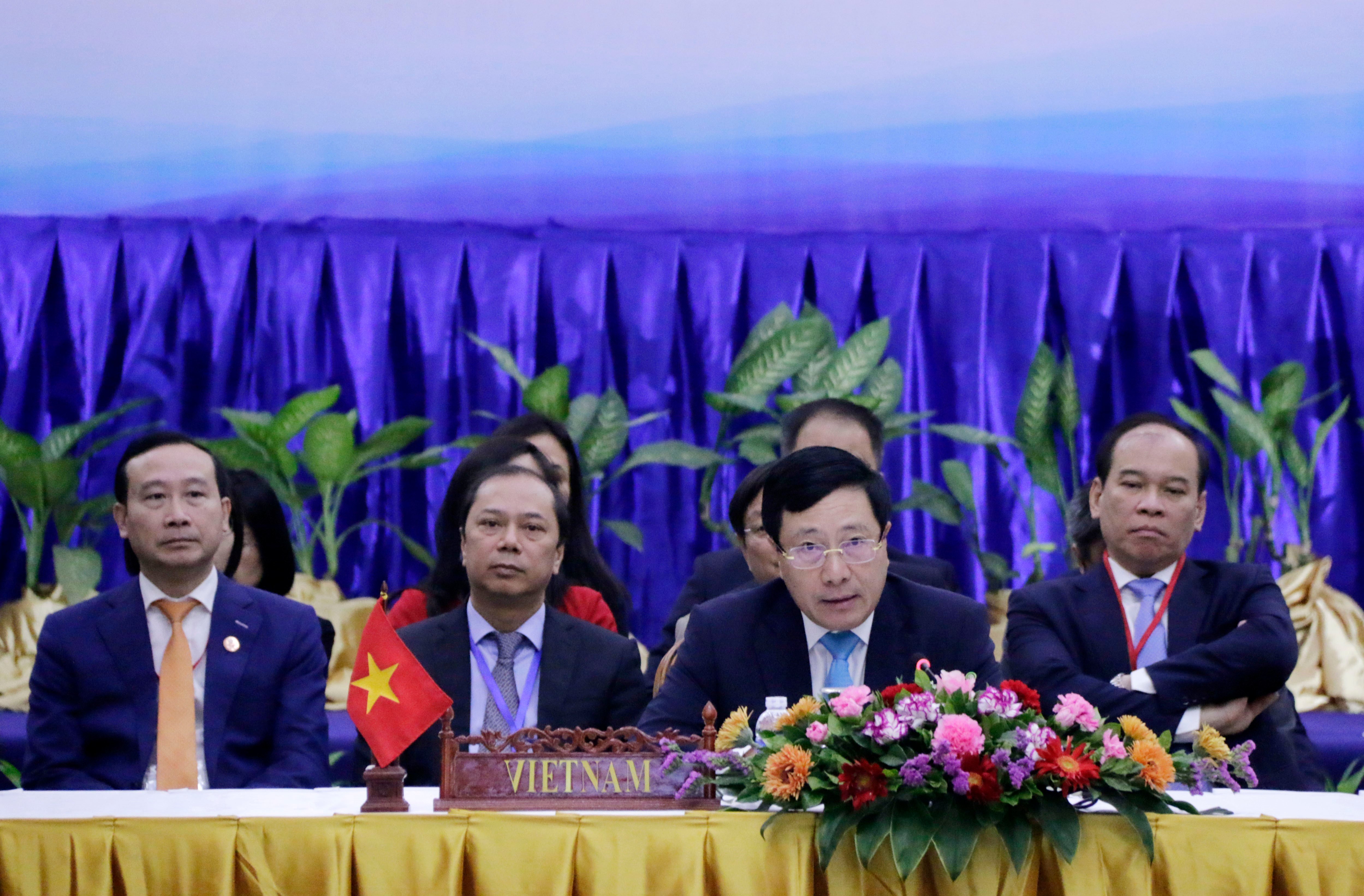


![[Photo] Prime Minister Pham Minh Chinh chairs the meeting of the Government Party Committee Standing Committee](https://vphoto.vietnam.vn/thumb/1200x675/vietnam/resource/IMAGE/2025/8/23/8e94aa3d26424d1ab1528c3e4bbacc45)

![[Photo] General Secretary To Lam attends the 80th Anniversary of the Cultural Sector's Traditional Day](https://vphoto.vietnam.vn/thumb/1200x675/vietnam/resource/IMAGE/2025/8/23/7a88e6b58502490aa153adf8f0eec2b2)

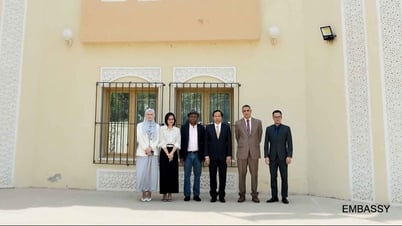

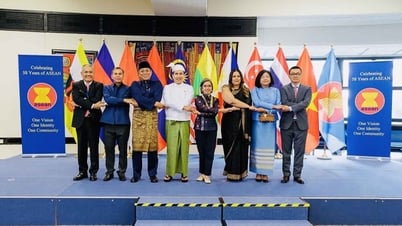
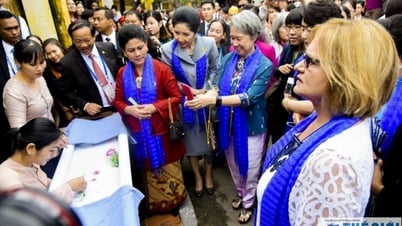
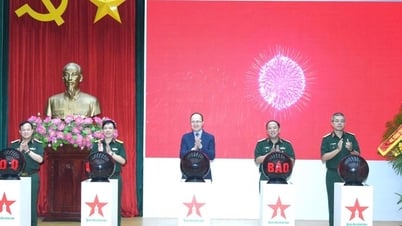



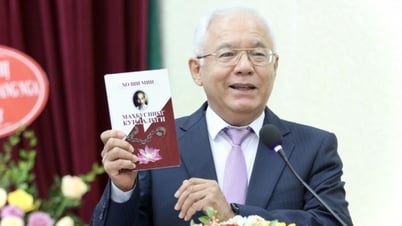


















































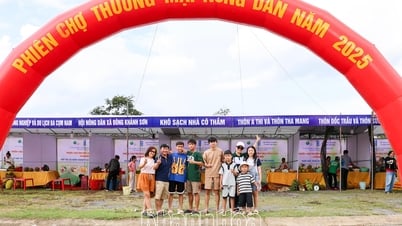

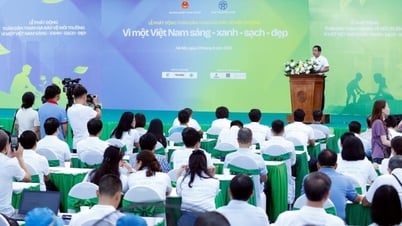

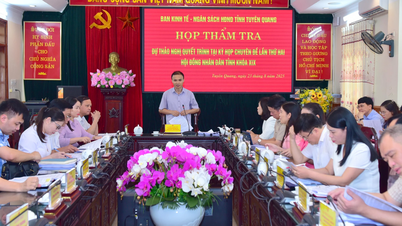

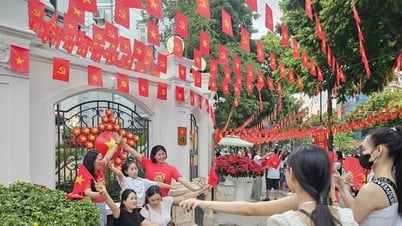

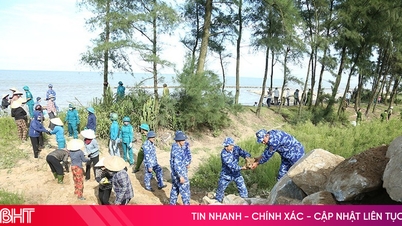

















Comment (0)